What are the cooking oils?
Cooking oil are a staple in many kitchens around the world. Cooking oils can come from a variety of sources, such as plants, animals, and nuts. Some common examples include olive oil, coconut oil, canola oil, and peanut oil.
Multiple oils have varying smoke points, which are the temperatures at which they begin to smoke and degrade. It is important to use the right oil for the right cooking method to avoid smoke and a burnt taste.
Some oils are high in healthy fats such as monounsaturated and polyunsaturated fats, which are good for heart health. Other oils are high in saturated and trans fats, which can contribute to heart disease and other health problems.
When choosing cooking oils, it is important to consider the flavor profile, smoke point, and health benefits of each option.
Coconut Oil:
A Coconut oil: This oil is high in saturated fats and has a unique flavor that works well in both sweet and savory dishes. It’s ideal for baking, sautéing, and roasting.
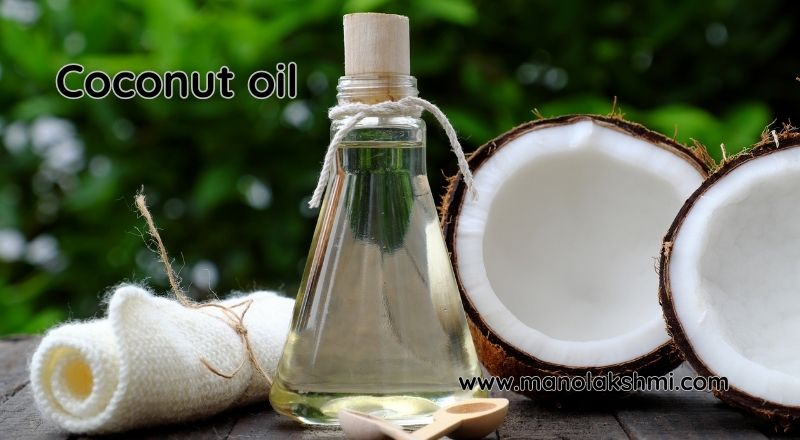
Coconut oil Nutrients
Coconut oil is a versatile and popular ingredient that is known for its unique flavor and many health benefits.
Medium-chain triglycerides (MCTs): Coconut oil is high in MCTs. Which are easily digested and converted into energy in the body.
Lauric acid: Coconut oil contains 50% MCTs with antibacterial and antiviral properties, a fatty acid.
Vitamin E: Coconut oil contains a small amount of vitamin E. Which is an antioxidant that helps protect cells from damage.
Polyphenols: Plant compounds possess antioxidant and anti-inflammatory properties, potentially protecting against chronic diseases.
In addition to these nutrients, coconut oil is also a good source of healthy fats. Can be used in a variety of ways in cooking and baking. From sautéing vegetables to making homemade granola, the possibilities are endless with this nutritious ingredient.
Peanut Oil:
A Peanut oil: This oil is high in monounsaturated fats and has a nutty flavor that works well in Asian and African cuisines. It’s perfect for stir-frying and deep-frying.
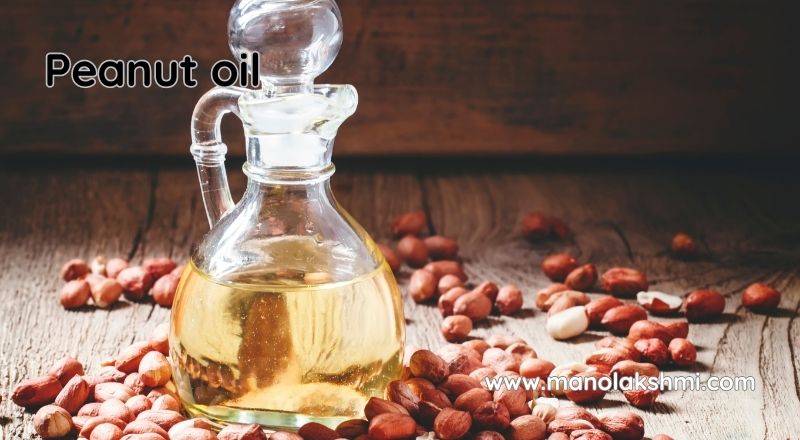
A Peanut oil Nutrients:
Peanut oil is a popular cooking oil made from peanuts. Peanut oil is a popular Asian ingredient with a nutty flavor and nutritional value.
Monounsaturated and polyunsaturated fats: Peanut oil is a good source of healthy fats, which can help promote heart health and lower cholesterol levels.
Vitamin E: Peanut oil contains vitamin E, a powerful antioxidant that can help protect cells from damage caused by free radicals.
Phytosterols: These plant compounds are similar in structure to cholesterol and can help lower cholesterol levels in the body.
Resveratrol: Antioxidant exhibits anti-inflammatory properties and potential cancer protection. Peanut oil is a nutritious and flavorful option for cooking and can provide a range of health benefits. All, peanut oil is a nutritious and flavorful option for cooking. can provide a range of health benefits.
Sunflower Oil:
Sunflower oil: This oil is high in polyunsaturated fats and vitamin E. It has a mild flavor and a high smoke point, making it great for frying and baking.

Sunflower oil health benefits
A Sunflower oil is a popular cooking oil derived from sunflower seeds, and it has several health advantages that make it an excellent complement to any diet.
Sunflower oil is high in vitamin E, a potent antioxidant that helps to protect the body from free radical damage.
It is also rich in healthy fats, such as monounsaturated and polyunsaturated fats, which can help to lower cholesterol levels and reduce the risk of heart disease.
Sunflower oil is a good source of linoleic acid, an essential fatty acid that the body needs but cannot produce on its own. This fatty acid is important for maintaining healthy skin and hair, as well as supporting immune function.
The high smoke point of sunflower oil makes it a great choice for cooking at high temperatures, such as for frying or baking.
Sunflower oil offers health benefits and versatility in various recipes, including salad dressings and baked goods. So, consider incorporating sunflower oil into your diet for a boost of nutrition and flavor!
Canola Oil:
A Canola oil: This oil is low in saturated fats and high in healthy monounsaturated fats. It’s a versatile oil that works well for frying, baking, and sautéing.
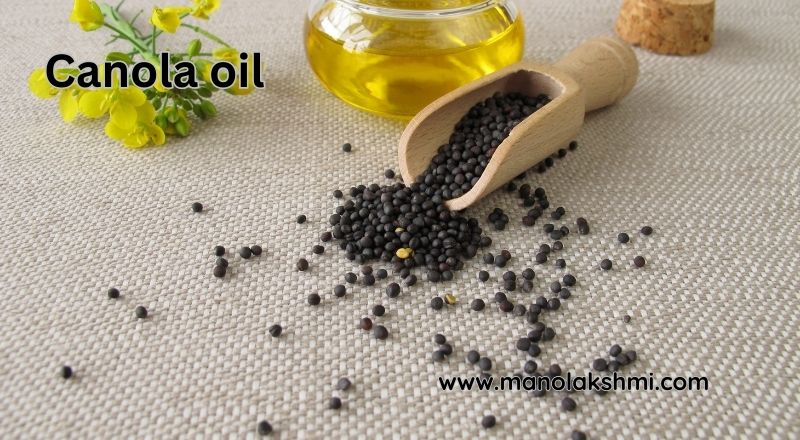
Canola oil Nutrients
This Canola oil is a kind of vegetable oil pulled from the plant. It is a popular cooking oil. Due to its neutral flavor and high smoke point.
Omega-3 fatty acids: Canola oil is a good source of alpha-linolenic acid (ALA), which is an essential omega-3 fatty acid that our body cannot produce on its own.
Vitamin E: Canola oil is rich in vitamin E, a powerful antioxidant that helps protect our cells from damage caused by free radicals. Vitamin E also plays a role in maintaining healthy skin and eyes.
Monounsaturated fats: Canola oil is high in monounsaturated fats. This can aid in reducing cholesterol levels and decreasing the likelihood of developing heart disease.
canola oil is a nutritious and versatile cooking oil. It is important to choose high-quality canola oil and use it in moderation as part of a balanced diet.
Olive Oil: Cooking oils
A Olive oil: This oil is rich in nutritious monounsaturated lard and antioxidants. It’s great for cooking at low to medium heat or as a finishing oil for salads and dips.

It’s great for sautéing, roasting, and making dressings.
Adding some context about olive oil and its health benefits can be helpful.
Vitamin E: A powerful antioxidant that protects cells. from damage and supports healthy skin and eyes.
Polyphenols: These plant compounds have anti-inflammatory and antioxidant effects. that may help to prevent chronic diseases such as cancer and Alzheimer’s.
Oleocanthal: A natural anti-inflammatory agent that may help to reduce. the risk of certain types of cancer and improve joint health.
It’s high in monounsaturated fats, which can help lower your risk of heart disease and stroke. Olive oil is also rich in antioxidants. Which can help protect your body from damage caused by free radicals.
Extra-virgin olive oil has a lower smoke point than other types of olive oil. So it’s best used for dressings and drizzling over finished dishes. If you’re sautéing or roasting, choose pure or light olive oil instead.
If you’re looking for a simple yet delicious salad dressing, try whisking together olive oil, lemon juice, Dijon mustard, and honey. This combination of flavors is sure to be a hit, and the olive oil will help your body absorb the nutrients from the other ingredients.
Avocado Oil:
A Avocado oil, derived from the avocado fruit, is renowned for its rich, smooth texture and mild flavor.
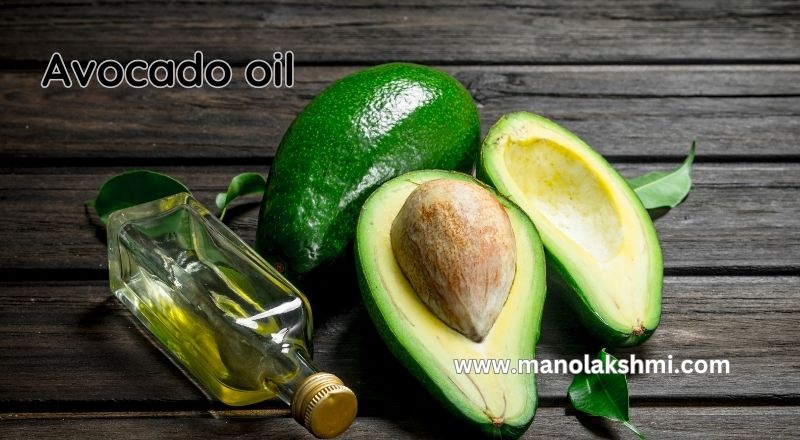
Avocado oil, extracted from the fruit, is a rich, smooth, and mildly flavorful edible oil used in cooking, baking, and salad dressing.
It has a high smoke point, making it suitable for various cooking methods like sautéing, frying, and grilling.
Avocado oil, known for its moisturizing and nourishing properties. Is widely used in cosmetics, hair care products, and food.
This product is praised for being rich in monounsaturated fats. Vitamins, and antioxidants known to promote healthy skin and hair.
A Avocado oil, like any other oil, should be consumed in moderation as part of a balanced diet.
Avocado oil nutrients
Avocado oil is a healthy and nutritious oil that is extracted from the flesh of ripe avocados. It contains a lot of different nutrients, such as:
Monounsaturated fats: Avocado oil is high in monounsaturated fats, which are healthy fats that can help lower cholesterol levels and decrease the risk of heart disease.
Vitamin E: This oil is also a good source of vitamin E. Which is an antioxidant that can help protect the body from damage caused by free radicals.
Lutein: Avocado oil contains lutein, beneficial for eye health and reduced macular degeneration risk.
Oleic acid: Avocado oil’s main fatty acid has anti-inflammatory properties.
Potassium: Avocado oil is also a good source of potassium. A mineral that is important for heart health and can help regulate blood pressure.
In addition to its nutrient content, avocado oil also has a high smoke point. Which makes it a great choice for cooking at high temperatures. Mild avocado oil versatile, used in various dishes with avocado-like flavor. Avocado oil is a nutritious and delicious cooking oil.
Sesame Oil: Cooking oils
Sesame oils are high in polyunsaturated fat and have a special nutty taste. As a finishing oil or for stir-frying.
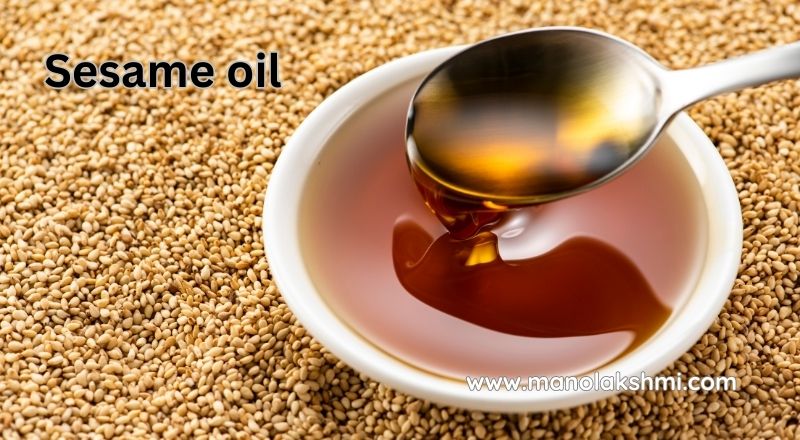
Sesame oil is a versatile, flavorful oil widely used in cuisines. Here are some additional points you might find interesting about sesame oil:
Sesame oil, derived from sesame seeds, is renowned for its nutty flavor and aroma and is frequently used in Asian cuisine.
Such as stir-fries, noodle dishes, and dipping sauces.
Sesame oil, a potent antioxidant, is commonly used in salad dressings, marinades, and sauces., Has potential health benefits in traditional medicine by reducing inflammation.
Better heart health and healthier skin.
There are different types of sesame oil available, including toasted and untoasted varieties. Toasted sesame oil has a stronger flavor and aroma compared to untoasted sesame oil.
When buying sesame oil, look for cold-pressed, unrefined varieties. The best flavour and potential health benefits.
Visit and support our page: Honey Benefits: How this sweetener can help your health
